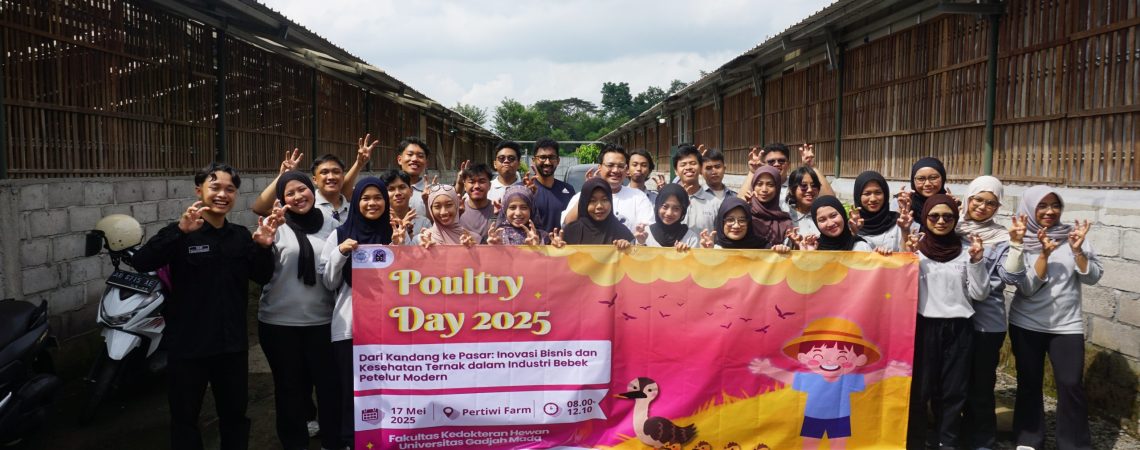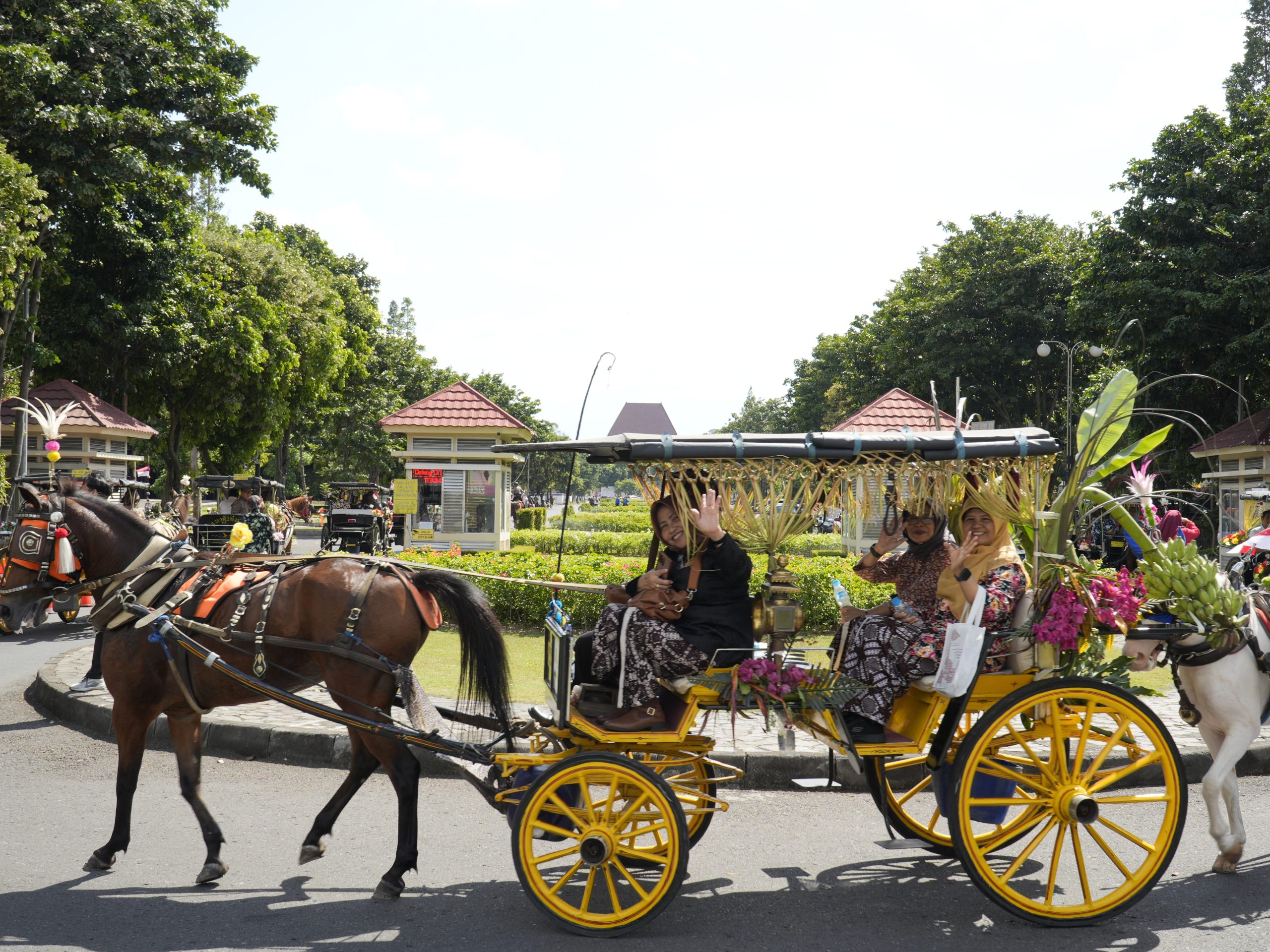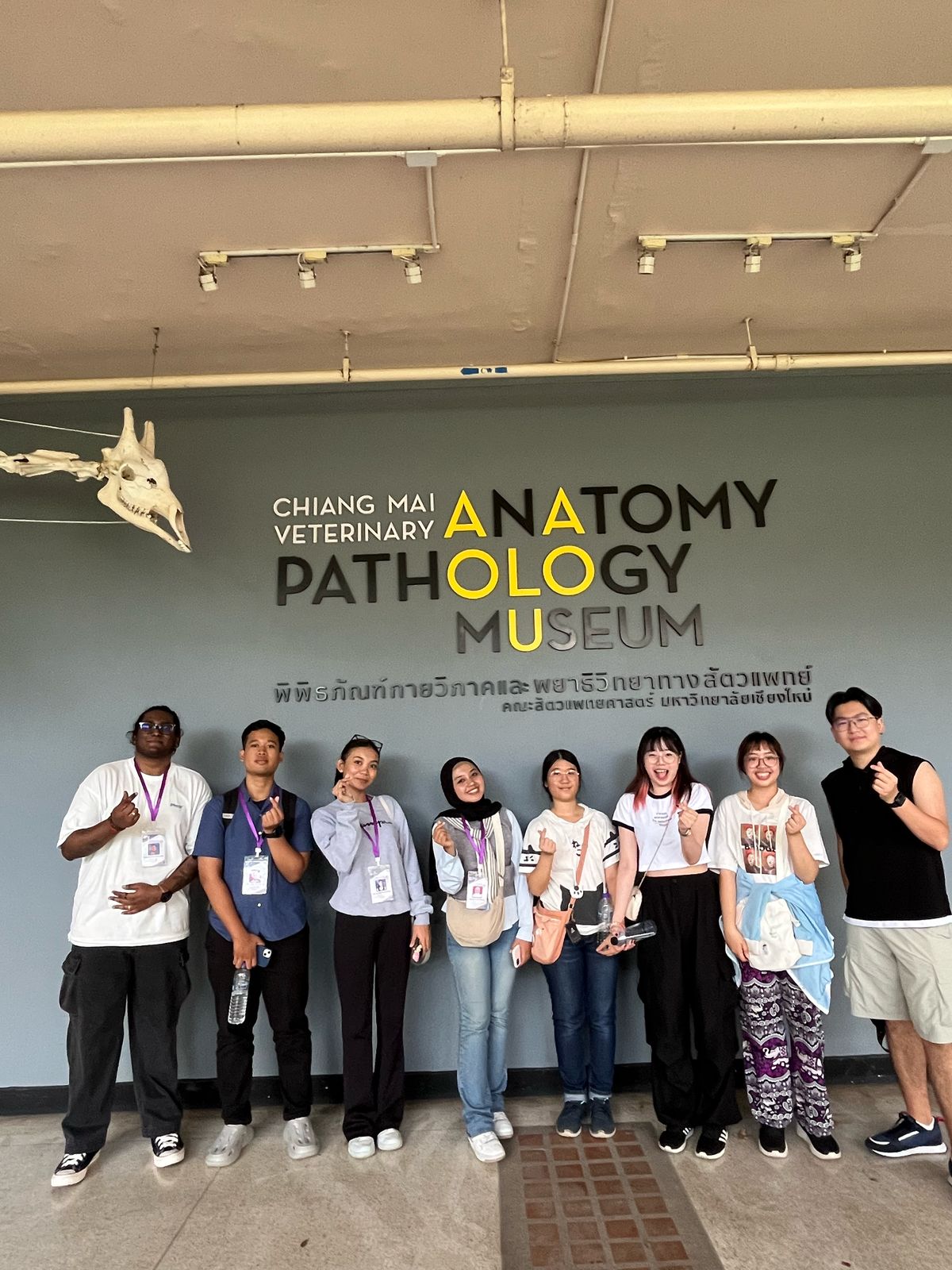Poultry Day of the Productive Livestock Study Association (Himpunan Studi Ternak Produktif) 2025 is a work program organized by the Poultry Division of HSTP FKH UGM. This year, it was held offline with the theme “From Cage to Market: Business Innovation and Livestock Health in the Modern Duck Laying Industry,” aimed at serving as a learning platform on productive poultry farming. Through this event, participants were expected to develop deeper skills and knowledge related to the veterinary profession, particularly in the areas of business and livestock health in the modern laying duck industry.
Poultry Day was held on Saturday, May 17, 2025, and was attended by approximately 33 participants, including members from within HSTP and students from FKH UGM. The event featured Mr. Mikha Shevanya Putra Pertiwi as the invited speaker.
The event began with an opening and prayer led by the MC, followed by the singing of “Indonesia Raya” and the “Gadjah Mada Hymn.” The program continued with welcoming remarks from the Poultry Day 2025 chairperson and the chairperson of HSTP 2025/2026. The presentation session by Mr. Mikha Shevanya Putra Pertiwi commenced at 09:30 WIB, covering business and health topics within the modern laying duck industry. The material presented included opportunities and challenges faced by duck breeders, details on poultry housing and duck health (both infectious and non-infectious diseases), the development of modern duck farming businesses, and principles of health management and biosecurity. He also shared key success factors in vaccination practices. The session concluded with a Q&A discussion and ended with documentation and the presentation of a certificate to the speaker by the chief organizer of Poultry Day 2025.
The second part of Poultry Day 2025 involved a practical field session featuring an informative farm tour and a hands-on salted egg making workshop. During the tour, the speaker explained how to identify cull ducks and distinguish them from layer ducks, along with insights into housing structure, feed and water placement, and maintaining a clean, low odour environment through trial and error. In the salted egg workshop, participants learned about the required materials: duck eggs, crushed red bricks, and salt, as well as the process of coating the eggs, followed by a two-week curing period and proper aftercare. The event concluded with group photo documentation involving the speaker, participants, and committee members.
Overall, the Poultry Day event ran well and received positive enthusiasm from participants, although several issues need to be addressed for future improvements. The main problems included a lack of coordination between divisions, internal communication barriers, delays in preparation, and technical difficulties that affected the flow of the event. A mismatch between the number of participants and the planned capacity also posed a challenge. For future events, it is recommended to establish a dedicated coordination group for division coordinators to improve communication, streamline workflows, and minimize potential obstacles during implementation.
It is hoped that the implementation of Poultry Day HSTP 2025 has broadened the insights of both the committee and the students of the UGM Faculty of Veterinary Medicine, enabling a better understanding of business and livestock health in the modern laying duck industry. It is hoped that through the implementation of Poultry Day HSTP 2025, the knowledge and insights of the organizing committee and students of the Faculty of Veterinary Medicine at UGM will be further enriched, particularly in understanding the livestock business and animal health within the modern laying duck industry. Held on Saturday, May 17, 2025, Poultry Day also aligns with the values of the Sustainable Development Goals (SDGs), specifically Goals 2, 3, 4, 8, 9, 10, and 12, as follows: Goal 2: Zero Hunger – achieved through training in identifying productive ducks and making preserved food products such as salted eggs. Goal 3: Good Health and Well-being are promoted through the application of proper livestock health practices to support food safety and public health. Goal 4: Quality Education realized through lifelong, hands-on learning via workshops and knowledge-sharing sessions on poultry farming and food preservation. Goal 8: Decent Work and Economic Growth reflected in the sharing of real-world experiences in running a laying duck business. Goal 9: Industry, Innovation, and Infrastructure supported through innovations in housing management, distribution systems, and processing of livestock products. Goal 10: Reduced Inequalities demonstrated by the program’s inclusive approach, being open to all HSTP members and FKH UGM students. Goal 12: Responsible Consumption and Production emphasized through sustainable practices, such as managing unproductive ducks and reducing odor in poultry houses. This event serves as a practical platform to promote sustainability, education, and innovation within the field of modern poultry farming.




